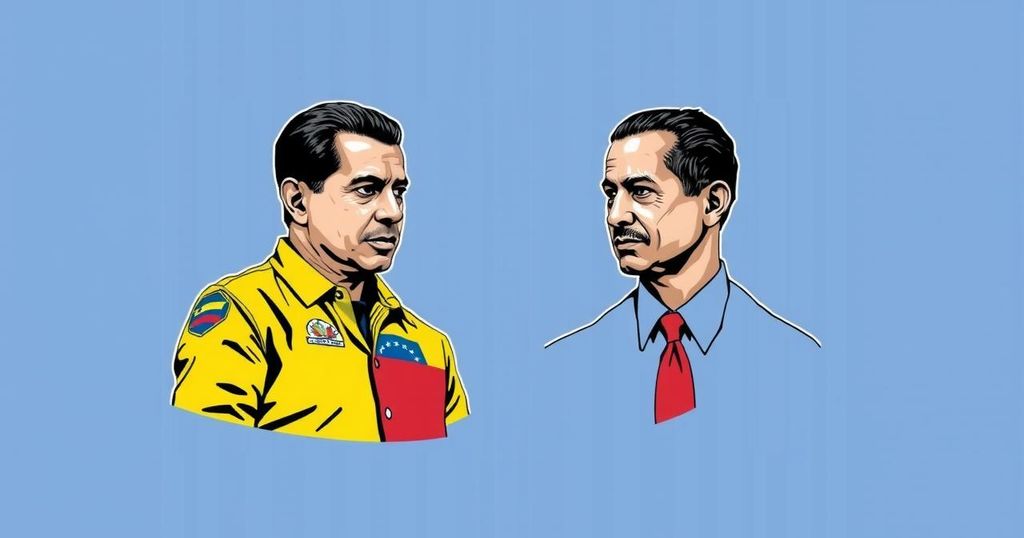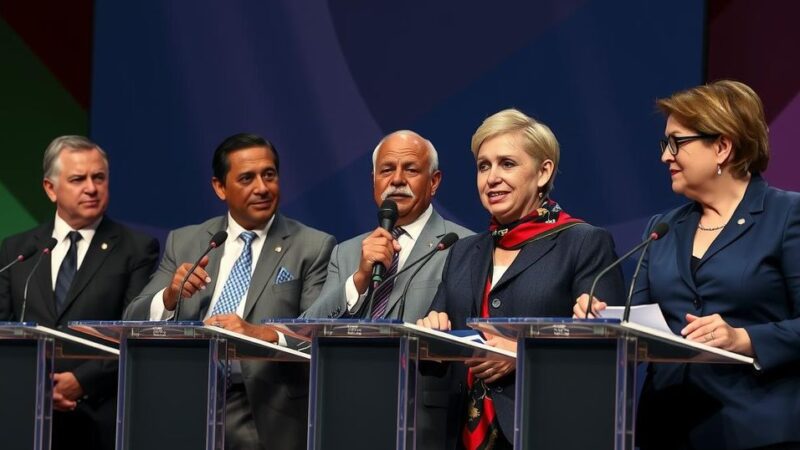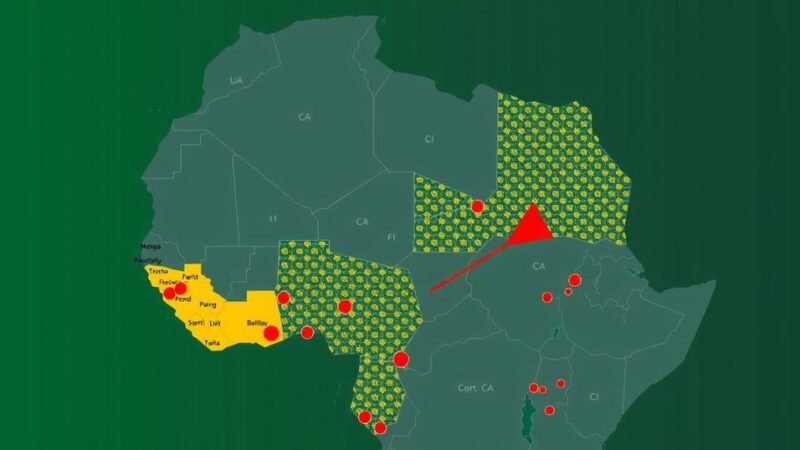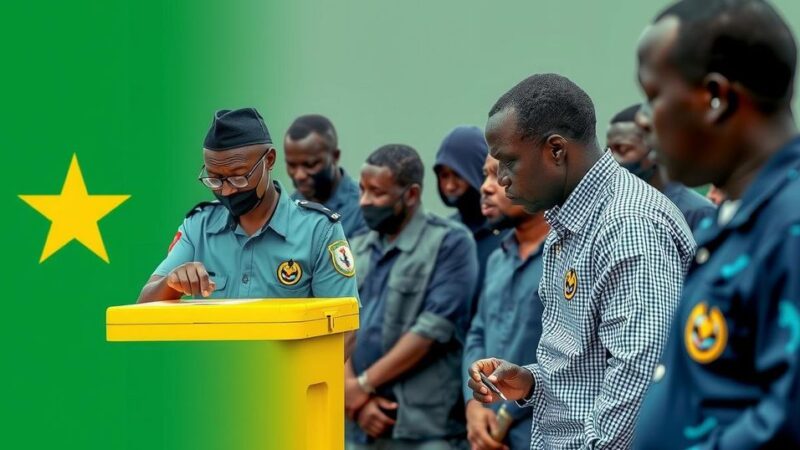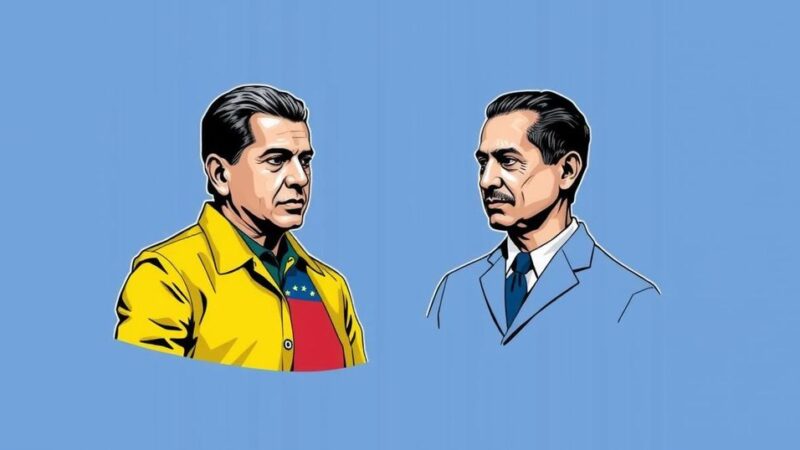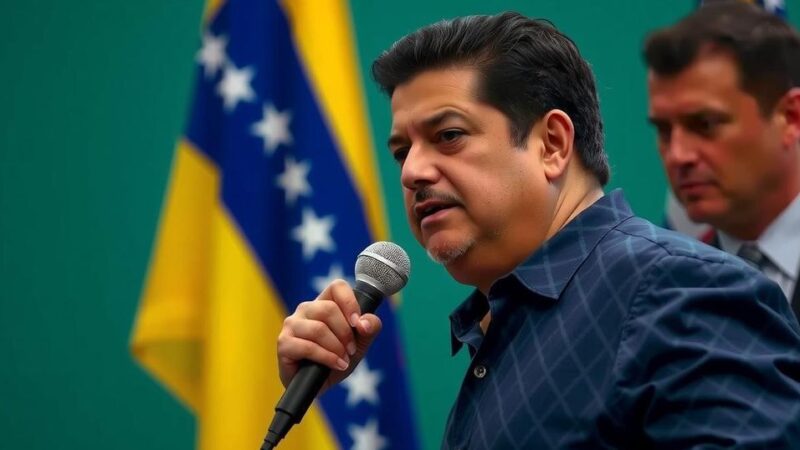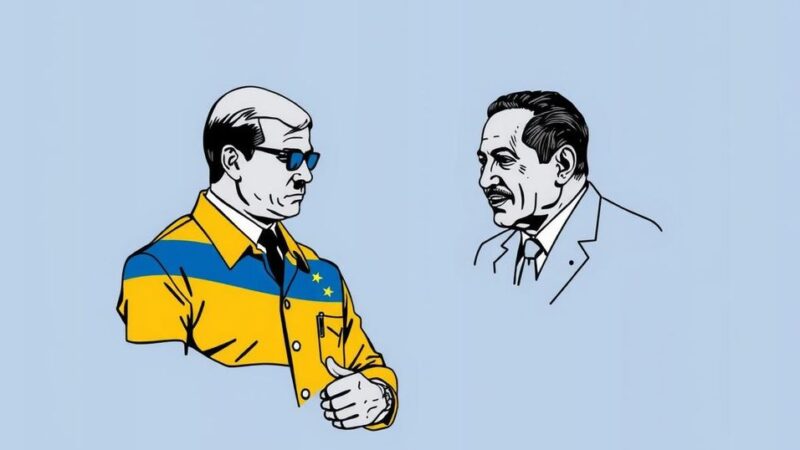The Biden administration has imposed sanctions on 21 Venezuelan officials linked to President Nicolás Maduro following the contested July election. These sanctions target key figures responsible for repressing dissent, building upon previous measures against Maduro’s inner circle. Critics question the effectiveness of such sanctions, as Maduro’s allies remain in power amid ongoing protests led by opposition candidate Edmundo González, who has been recognized by the U.S. as the legitimate president-elect.
On Wednesday, the Biden administration announced sanctions targeting 21 officials aligned with Venezuelan President Nicolás Maduro following the disputed presidential election held in July. These sanctions, issued by the Department of the Treasury, focus on high-ranking Venezuelan officials, including leaders of corrections and intelligence sectors, as well as the minister managing Maduro’s presidential office. They are accused of contributing to the post-election repression. This new imposition adds to an existing list of sanctioned Venezuelans, encompassing judges, ministers, and prosecutors.
Acting Under Secretary of the Treasury for Terrorism and Financial Intelligence, Bradley T. Smith, articulated that the repressive actions of Maduro and his associates demonstrate a desperate attempt to stifle the voices of Venezuelans. He emphasized the United States’ commitment to holding accountable those resorting to violence and intimidation as methods to undermine democratic processes.
This recent sanction initiative complements prior actions taken against Maduro’s close allies, notably sanctions imposed a mere two months earlier on 16 other high-ranking officials for obstructing the electoral process and committing human rights violations. The U.S. has employed sanctions alongside travel restrictions with the objective of further isolating Maduro’s support network. However, skepticism persists regarding the effectiveness of such measures, as prominent regime officials continue to maintain substantial power and control over the political and economic landscape in Venezuela.
In response to U.S. sanctions, Venezuelan lawmakers are pursuing legislation that would characterize international sanctions as crimes against humanity, thereby enabling the prosecution of individuals endorsing such measures. This backdrop of tension follows the Biden administration’s recent recognition of Edmundo González, a contender from the opposition, as the legitimate president-elect following the July election, which Maduro had declared to have won but failed to substantiate with official results—drawing significant international rebuke.
The claims made by González, who fled to Spain amid threats of arrest, assert that he won decisively, although these assertions have been vigorously denied by Maduro’s administration, which accuses him of fabricating electoral data. Protests have erupted in the wake of the disputed election, with demonstrators persistently demanding transparency and the release of results from each polling station to unveil alleged electoral misconduct orchestrated by Maduro’s regime.
The sanctions placed by the Biden administration in response to the disputed Venezuelan elections are part of a broader strategy to exert pressure on President Maduro’s government. Following the election, which Maduro claimed to have won, the international community, including the U.S., expressed deep concerns over the legitimacy of the electoral process and alleged human rights violations carried out by Maduro’s officials against dissenting voices. The situation in Venezuela has led to widespread protests fueled by calls for democracy and transparency within the electoral framework. The narrative surrounding these events highlights the ongoing political strife between the Maduro administration and the opposition. Amidst sanctions, opposition leaders, such as Edmundo González, are rallying support, contesting the election results and demanding accountability. However, the Maduro government, maintaining powerful control, continues to challenge these claims, exacerbating tensions within the region.
In conclusion, the sanctions imposed by the Biden administration reflect a continued effort to hold accountable those involved in repressive actions following Venezuela’s controversial presidential election. With a focus on high-ranking officials in Maduro’s administration, these measures aim to signal the U.S. commitment to upholding democratic principles in Venezuela. Nevertheless, the persistent power held by sanctioned individuals raises questions about the effectiveness of sanctions as a tool for political change. The evolving dynamics between the Maduro government and the opposition continue to shape the future of Venezuela’s political landscape.
Original Source: www.newsweek.com
